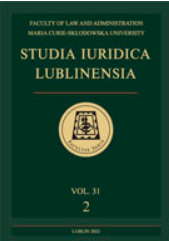Tax Fairness in the Context of the Digital (Industrial) Revolution 4.0
Tax Fairness in the Context of the Digital (Industrial) Revolution 4.0
Author(s): Miroslav Štrkolec, Ladislav HrabčákSubject(s): Social Sciences, Economy, Sociology, Economic development, Socio-Economic Research
Published by: Wydawnictwo Naukowe Uniwersytetu Marii Curie-Sklodowskiej
Keywords: digital economy; principles of taxation; tax fairness; digital services tax
Summary/Abstract: The principles of taxation are one of the most important issues underlying tax systems as such. In spite of this fact, recently the scientific debate has been moving in a different direction and these seemingly straightforward issues have not received much attention. In our opinion, this is not correct, all the more so now that tax law (as well as other branches of law) is subject to many changes caused by the phenomena brought about by the digital (industrial) revolution 4.0. One such principle is that of tax fairness. It can be said that the literature on this principle is of a high standard. What impacts (if any) does the digital economy have on the substance and attributes of fair tax burden? Are the proposed changes at the level of the European Union aimed at limiting the arbitrariness of the tax authority? These are also questions that we will try to answer in this paper, which aims to verify the following hypotheses: 1) the digital economy is a significant factor influencing the established and underlying principle of taxation, which is tax fairness; 2) the digital services tax is one of the instruments at the European Union level that can be used to achieve tax fairness across member states in period which can be described as the digital (industrial) revolution 4.0. In order to fulfil the set aim and to verify these partial hypotheses, we used analysis, synthesis and a historical method, which were used in combination. The results of our research can stimulate scientific debate and contribute to the updating of the already established and generally accepted by the scientific community general theoretical knowledge.
Journal: Studia Iuridica Lublinensia
- Issue Year: 31/2022
- Issue No: 4
- Page Range: 155-174
- Page Count: 20
- Language: English

